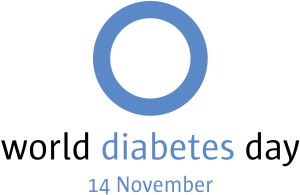Today is the third day of #dblogweek and the topic is “the blame game.” I’m tasked with telling you how blame comes up at “doctor'” visits. For my purposes, by “doctor,” I am referring to all health care professionals (HCP).
As you may or may not know, my focus is on the language of diabetes. I have learned that the messages we send/receive can help or hurt and that words really do make a difference.
When those of us with diabetes attend a HCP visit, we often receive messages that impart blame. Non-compliant, non-adherent, uncontrolled, and poorly controlled are some of the words we hear. These are part of messages that blame and judge people.
Because diabetes is a disease that actually cannot be controlled (the parts of our bodies that control blood glucose simply don’t work and so we do what we can to manage it), it is not fair to base how one’s doing on something like control. Instead, HCP can talk about action – what are we doing (or doing well)? What’s working? What’s not working? What else could we try? Try saying “blood glucose levels,” or “A1C,” or whatever it is that you’re actually referring to when discussing control.
Compliance and adherence refer to doing what someone else wants. Because our health is our own, taking care of ourselves is up to us and the choices we make every minute of every day. That’s not compliance/adherence – that’s diabetes self-management. Basing how we’re doing on compliance/adherence is a breeding ground for blame and has an easy fix – make it about the person with diabetes and not the HCP! Ask how we’re doing and what questions we have. Ask if we’d like to hear a suggestion or what has worked for others in a similar situation.
Language matters in general, and it also makes a difference for people with diabetes. Health care professionals can improve the experience at every visit by eradicating blame through choosing messages of strength and hope.

